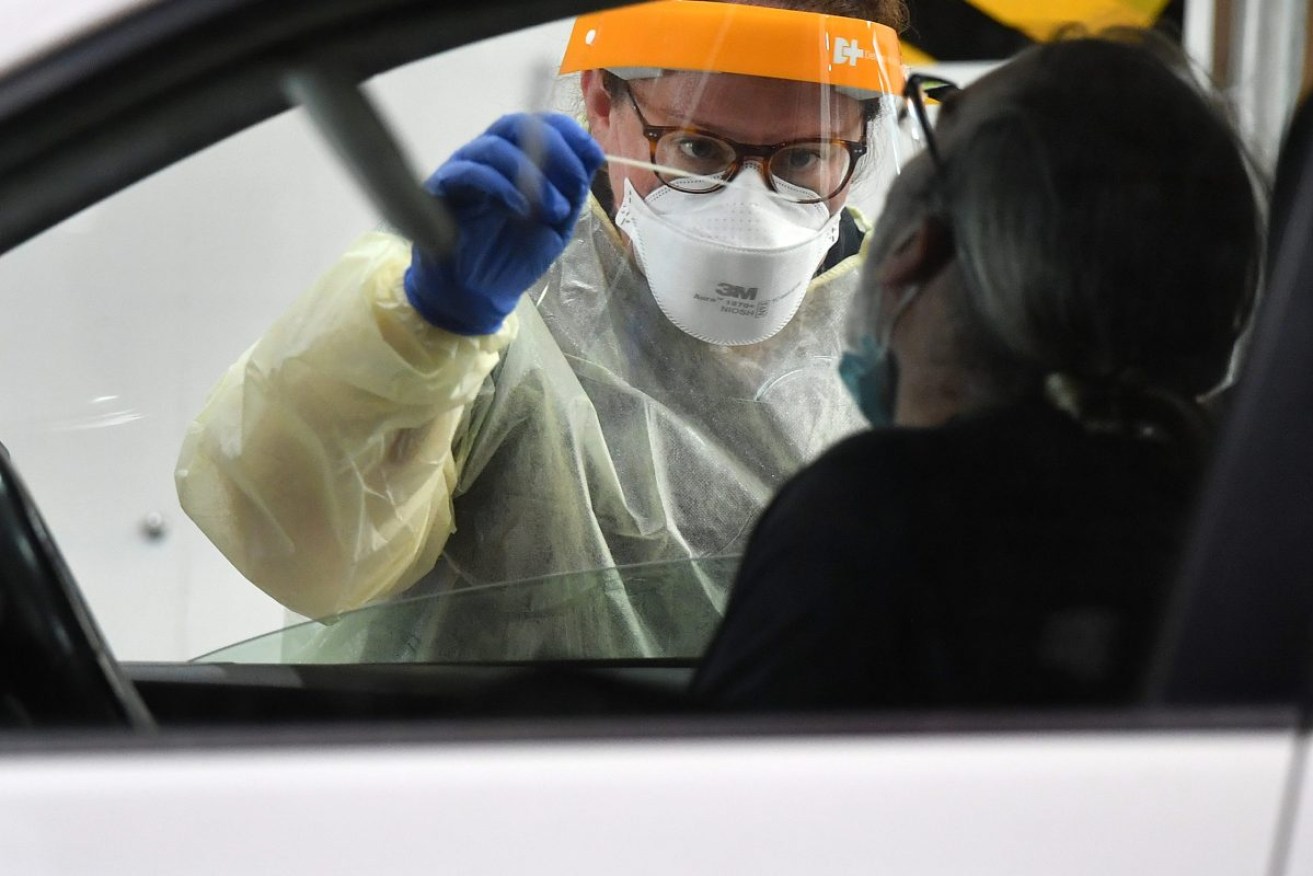Access tightens for COVID PCR tests and mental health help
Patients will need a medical referral in order to get a free COVID PCR test from next year, with the federal government also cutting the number of subsidised psychology appointments people can access by half.

Photo: Joel Carrett/AAP
Under a new national management plan for 2023, the government is set to move away from “COVID exceptionalism”.
“Over 2023, Australia will transition to managing COVID-19 in a similar way to other respiratory viruses,” the plan said.
The government will spend $2.8 million on the national plan for 2023, while warning COVID will continue to impact Australians.
Under the changes put forward by the plan, a referral from a medical or nurse practitioner will be needed in order for patients to receive a free PCR test.
The plan said testing won’t be used as a surveillance tool like it was during previous lockdowns, but will instead be targeted in order for eligible patients to get faster access to antiviral treatments.
Access to antivirals will be provided following a positive PCR or rapid antigen test.
“There will be an ongoing need to evaluate and optimise how we test, who we test and when we test people for COVID-19 over the course of 2023,” the plan said.
“Over the next 12 months, COVID-19 testing requirements will be aligned with testing arrangements associated with other respiratory illnesses.”
People in high-risk populations, such as older Australians, Indigenous people as well as those with a disability will be prioritised for PCR testing.
Health Minister Mark Butler said the government’s priority was to minimise the incidence of death and severe illness, particularly focusing on those most at risk.
“The national plan provides clear guidance to the community and healthcare providers on how the Australian government will play its part in managing COVID-19 into the future,” he said.
“We will continue to protect those most at risk, while ensuring we have the capacity to respond to future waves and variants.”
The national plan recognises that COVID-19 continues to disproportionately affect some Australians and outlines a suite of measures including a forward plan for vaccine procurement and administration and additional help for those in aged care, Indigenous Australians, the disabled and multicultural communities;
It will also support effective COVID-19 testing to limit the spread and ensure that those most at risk of severe disease have fast access to care and treatments and strengthen the National Medical Stockpile safety net and pandemic preparedness capability.
Butler said the government would continue to adapt Australia’s COVID-19 response in line with the epidemiology, with constant monitoring and communication on any changes to be delivered through the National COVID-19 Community Protection Framework.
He said that given the significant impact of the virus on older Australians, it remained crucial for aged care services to ensure their clients receive appropriate protection from infection and that any cases in their facilities are properly managed.
Butler also confirmed that the number of subsidised psychology appointments Australians are able to access will be halved from next year following cuts to a government scheme.
From 2023, patients will only be able to claim 10 subsidised appointments, down from the 20 which had been available during the pandemic.
Butler said the changes follow a review of the Better Access for Mental Health program.
While the program allowed for 10 psychology appointments to be claimed through Medicare, the number was increased to 20 in response to the COVID lockdowns in 2020.
Money for the additional appointments will run out at the end of the year, with Butler indicating the funding won’t be renewed and that additional appointments that were able to be claimed extended waitlists and increased barriers for people to access the service.
“The evaluation found that all of the additional services went to existing patients and that the number of new patients who were able to get into the system and get access to psychology services actually declined by seven per cent,” he told reporters in Adelaide on Monday.
“All of the growth in services went to the highest income Australians, with the lowest-income Australians actually receiving fewer services over this period… wait times blew out for everyone.”
Executive director of the Australian Association of Psychologists Tegan Carrison said the organisation was disappointed by the cuts.
“Given the devastating impact of the pandemic, regular natural disasters, increasing levels of mental ill-health and unprecedented demand, this decision is denying people the level of mental health care they so desperately need,” she said.
“We implore the federal government to give more consideration to the mental wellbeing of all Australians.”
The association had previously called for a $150 rebate for psychology patients in order to make the visits more affordable.




